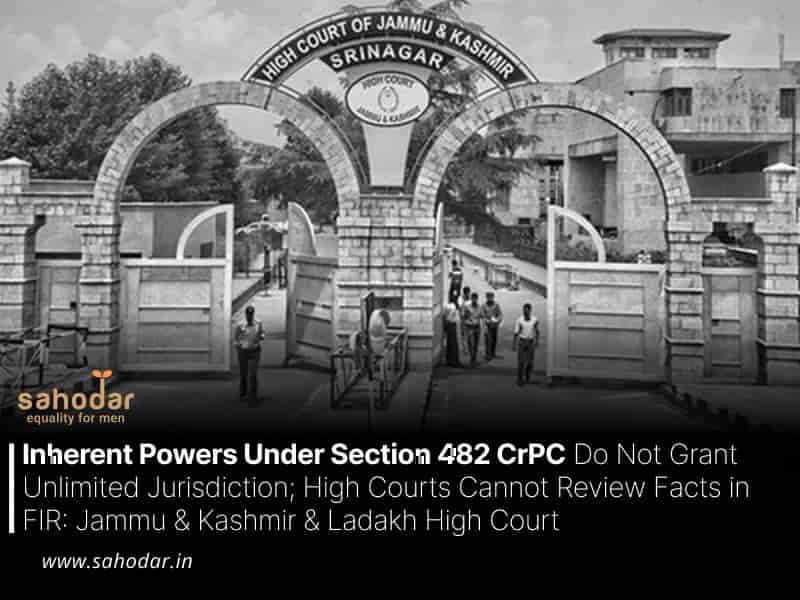The Jammu and Kashmir and Ladakh High Court ruled that the inherent powers under Section 482 of the CrPC do not provide High Courts with unlimited jurisdiction. The Bench clarified that when exercising powers under Section 482, High Courts cannot conduct a thorough examination of the facts in an FIR, as they are not to act as an appellate court and reach their own conclusions.
A Single Bench of Justice Javed Iqbal Wani observed, “It is manifest that prima-facie case has been come to exist and found established disclosing the ingredients of offences alleged to been committed by the accused petitioners herein as such, under these circumstances, the court is not inclined to exercise inherent power enshrined under Section 482 CrPC.”
Advocate Shah Ashiq Hussain represented the petitioners, while Dy.AG Mubeen Wani represented the respondents. The Court refused to cancel the FIR, which was filed under Sections 341, 354, 323, and 506 of the IPC. The petitioners had asked the Court to use its inherent powers under Section 482 of the CrPC to dismiss the FIR. The Court explained that the petitioners claimed the dispute was over a piece of land. They alleged that the respondents trespassed on their property, damaged the foundation, and attacked one of them with an iron rod, resulting in hospitalization. The petitioners also claimed that the police were initially reluctant to register the FIR because of pressure from the respondents.
The Bench cited the Supreme Court’s ruling in Neeharika Infrastructure Private Limited v. State of Maharashtra (2021), which stated that the High Court should avoid conducting a detailed analysis of the case to predict the chances of conviction or acquittal. The Supreme Court held, “The High Court should not assess the strengths and weaknesses of the allegations merely because the petitioner claims there is ill will from the person who filed the FIR or the complainant.”
In light of the same, the High Court stated that “the court in exercise of inherent power under Section 482 CrPC has only to consider whether the allegations in the FIR disclose commission of cognizable offences or not and that the court is not required to consider on merits whether or not the allegations make out a cognizable offence and that the court is to permit the investigating agency to investigate the allegations in FIR.”
The Bench explained that courts can’t go into a detailed analysis of the facts in an FIR like an appellate court and draw their own conclusions. The principles of “abuse of process of law” or “to secure the ends of justice” guide the use of inherent powers.
As a result, the Court decided not to use its inherent powers under Section 482 of the CrPC, saying that the court should not intervene if there’s a clear case showing the elements of the offenses against the accused. Therefore, the High Court dismissed the petition.
Cause Title: Mohammad Akram Rather & Ors. v. UT & Ors.
Appearance:
Petitioners: Advocates Shah Ashiq Hussain and Palvi Ghonkrokta
Respondents: Dy.AG Mubeen Wani; AC Nowbahar Khan

